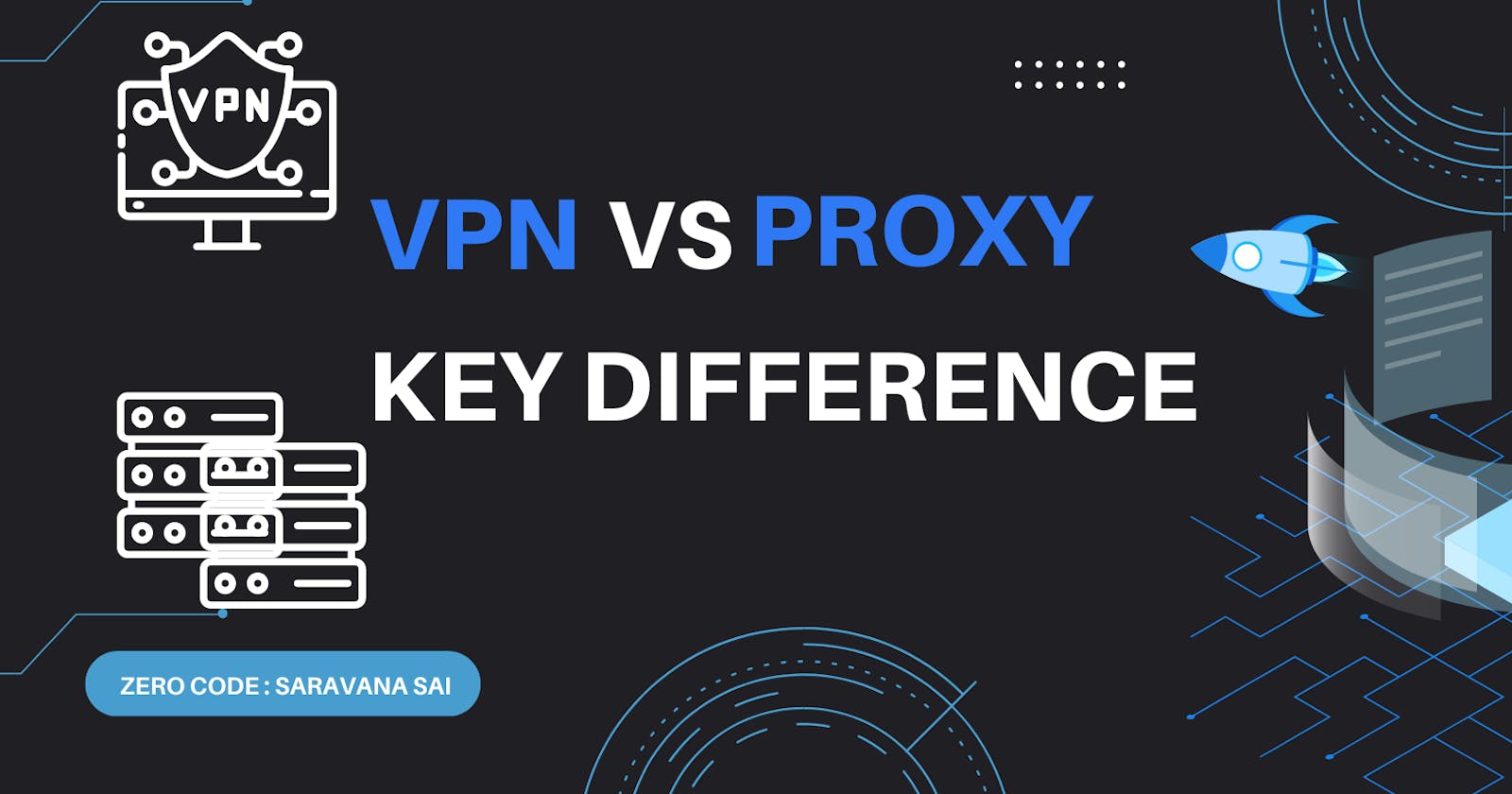Proxy vs VPN: What Is the Difference?
Though proxies and VPN both provide privacy, they do it differently. Comparing proxy vs VPN capabilities & difference.
Introduction
Hi, folks. In this blog post, we'll dive into the world of proxies and VPNs, exploring their fundamental purposes, how they work, and the advantages they offer.
Proxy server
A proxy server acts as an intermediary between your device and the internet. When you request a web page or online resource through a proxy, it forwards your request to the target server on your behalf, effectively hiding your IP address and location.

Virtual Private Networks (VPNs):
A VPN, or Virtual Private Network, creates a secure and encrypted tunnel between your device and a remote server operated by the VPN provider. This tunnel encrypts all data passing through it, making it almost impossible for third parties to intercept or decipher your online activities.

Key Differences
Encryption:
The main difference between a VPN proxy and a VPN is encryption. VPNs hide not only your private IP address but all your web activity, such as the websites you visit, using encryption. Proxy servers, on the other hand, will only change your IP address, but they won’t encrypt your online activities.
Selling data:
Most proxy servers are free, and to make up for this lack of charge, many will sell user data to advertisers. Most VPNs on the other hand are paid and do not log or share user traffic data.
Coverage:
While VPNs encrypt all of a user’s web activity, no matter the website or app, proxy servers only hide one website or app at a time.
A VPN and proxy server both mask your IP address. But a VPN will also encrypt the data you send and receive, something that a proxy server doesn’t do. If you are already using a VPN, then, connecting to a website or app through a proxy server would be an unnecessary step.
Comparison between VPN and Proxy servers
| Feature | VPN | Proxy servers |
| Protection | It offers encryption, authentication, and integrity protection to web traffic. | It does not give much protection over the connection. |
| Tunnel Creation | It makes a secure connection between the end users. | It does not create any type of secure connection. |
| Speed | It offers very high speed. | Its speed relies on its servers. |
| Integration | VPN servers are mainly designed for personal usage. As a result, installation and use are as simple as a few mouse clicks. | The integration process is difficult because it is designed with business in mind. |
| IP address | It completely hides the IP Address. | It hides the IP Address, but the proxy owner can still view it. |
| Price | VPN servers are payable. | It provides the features free of cost. |
| Security | It provides higher security than proxy servers. | It doesn't provide any type of security. |
| Connection | It offers a stable and seamless connection. | Its connection is highly unstable. |
| Working | It works on a firewall. | It works on browsers. |
| Protocols | It utilizes various protocols like L2TP, PTTP, IPsec, etc. | It utilizes various protocols like TELNET, SMTP, HTTP, and FTP. |
| Encryption policy | It has a strict encryption policy. | It has a medium-level encryption policy. |
| Working Model | It works at the OS level. | It works on the application level. |
| Ease of Use | It is very simple to use. | It needs some expertise to use. |
Conclusion
In conclusion, the choice between a proxy and a VPN depends on your specific needs and priorities. If you require fast access for specific applications and are less concerned about encryption, a proxy may be sufficient.
Understanding these differences will empower you to make an informed decision to protect your online presence effectively.
Share & comment your thoughts on it for more content like this.
